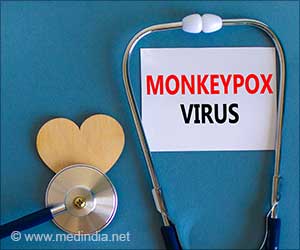- Social drinking boosts euphoria through increased dopamine activity
- Fruit fly studies reveal how social settings influence alcohol’s stimulant effects
- Research identifies the D1 dopamine receptor as a key factor in Alcohol Use Disorder (AUD)
Drinking with friends often enhances feelings of euphoria and sociability, while drinking alone may lead to negative emotions. Recent research from the University of Texas at El Paso (UTEP) sheds light on why these different experiences occur. This study, published in Addiction Biology, explores the neurobiological mechanisms behind social drinking and its effects on the brain (1✔ ✔Trusted Source
What happens to your brain when you drink with friends?
).
Advertisement
Influence of Alcohol in Different Social Settings
Dr. Kyung-An Han and her team at UTEP investigated how alcohol affects behavior differently in social versus solitary settings. Using fruit flies as subjects, the researchers exposed them to ethanol in both individual and group settings. They measured the flies’ movement to gauge their reaction to alcohol.
The findings revealed that fruit flies, much like humans, show varied responses to alcohol depending on their social environment. Flies exposed to ethanol in a social setting exhibited significantly more hyperactivity compared to those tested alone. This suggests that social contexts amplify alcohol’s stimulant effects.
Advertisement
Role of Dopamine in Alcohol Use Disorder (AUD)
The study also highlighted the role of dopamine, a neurotransmitter associated with pleasure and motivation. The researchers compared the behavior of fruit flies with normal dopamine levels to those with artificially increased dopamine. In solitary conditions, dopamine levels did not significantly alter the flies’ response to alcohol. However, in social settings, higher dopamine levels resulted in increased hyperactivity.
The team identified the D1 dopamine receptor as a crucial player in this process. This receptor’s involvement provides a potential target for understanding Alcohol Use Disorder (AUD) in humans, as it is linked to the disease.
The research offers insights into why social drinking can lead to stronger euphoria and potentially increase vulnerability to AUD. By understanding how social interactions and dopamine levels interact to affect alcohol consumption, researchers can better address the factors contributing to AUD.
Advertisement
Dopamine Receptors Research for New Interventions
The UTEP team plans to further explore the D1 dopamine receptor’s role in alcohol-related behaviors. This research could pave the way for new interventions and treatments for AUD, helping to mitigate the risks associated with social drinking.
This study underscores the complex interplay between social settings, dopamine, and alcohol’s effects on the brain. By leveraging fruit fly models, researchers at UTEP have provided valuable insights into the mechanisms driving social drinking behaviors and their implications for AUD. As this research progresses, it holds promise for developing more effective strategies to address alcohol-related issues and improve public health.
Reference:
- What happens to your brain when you drink with friends? – (https://www.sciencedaily.com/releases/2024/08/240806131350.htm)
Source-Medindia



